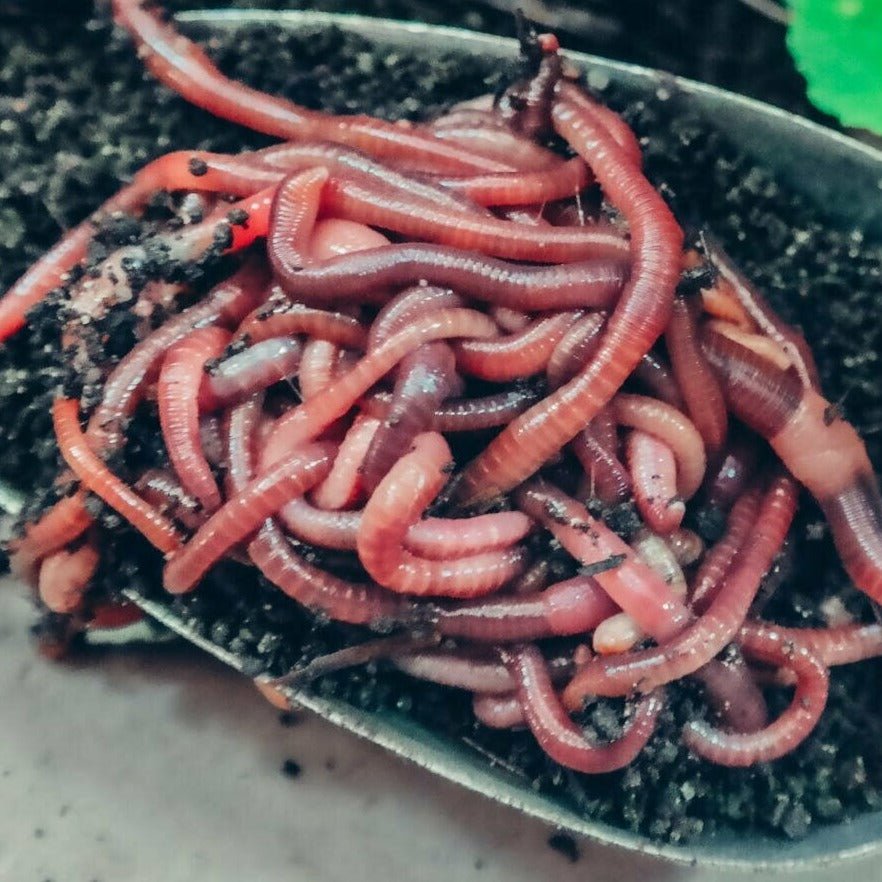Red Wiggler Worms Demystified: Unlocking the Tricks of Vermiculture for Greener Living and Nutrient-Rich Dirt
In the realm of lasting methods for enriching dirt quality and promoting eco-conscious living, red wiggler worms play a crucial yet frequently ignored duty. Red Wiggler Worms. Understanding the ins and outs of caring for these worms, enhancing their setting, and using their castings can lead to a greener lifestyle and much healthier soil for plants to grow.
The Function of Red Wiggler Worms
Red Wiggler worms play a vital function in composting systems by effectively breaking down natural issue into nutrient-rich spreadings. These starved eaters eat a variety of organic materials, such as cooking area scraps, lawn waste, and paper items. As they feed, the worms' digestive processes break down the raw material right into a penalty, dark, and nutrient-dense material called worm spreadings or vermicompost.
The spreadings created by Red Wiggler worms are highly useful for dirt health and plant growth. They are rich in vital nutrients like potassium, phosphorus, and nitrogen, which are important for supporting healthy and balanced plant growth. Additionally, worm castings contain beneficial germs and enzymes that aid enhance dirt framework, increase water retention, and boost nutrient uptake by plants.
Advantages of Vermicomposting

It improves soil structure, improves dirt oygenation, and enhances dirt dampness retention. Vermicompost also improves the soil with important nutrients like potassium, phosphorus, and nitrogen, advertising plant development and total dirt fertility.
Furthermore, vermicomposting assistances lasting gardening practices by giving a all-natural and chemical-free alternative to artificial fertilizers. Red Wiggler Worms. This eco-friendly approach not only enriches the dirt yet also helps in reducing dependence on damaging chemicals, advertising a greener and extra sustainable means of horticulture
Establishing Up a Worm Bin
When developing a worm container for vermicomposting, proper configuration is essential to ensure the success of the composting procedure. The initial action in establishing up a worm container is choosing an ideal container.
After including the bed linens, present the red wiggler worms to the container. The worms need to then be given with food scraps such as fruit and vegetable peels, coffee premises, and eggshells.
Regularly check the moisture degrees and temperature level in the worm bin to make certain ideal conditions for the worms. With appropriate setup and upkeep, the worm bin will successfully convert organic waste into nutrient-rich garden compost for your plants and garden.
Gathering Worm Spreadings
To effectively gather nutrient-rich worm castings from your vermicomposting system, an organized harvesting technique is crucial. When it comes time to Bonuses collect the worm castings, there are a few essential actions to follow to guarantee a successful process.

Troubleshooting Common Issues
Recognizing and attending to common obstacles that might occur during the vermicomposting process is crucial for keeping a healthy and balanced and productive worm bin. One common issue that vermicomposters encounter is overfeeding. Adding excess food scraps can result in a buildup of moisture and level of acidity in the worm container, potentially hurting the worms. To stop this, feed the worms in small amounts, guaranteeing that the food scraps are appropriately broken down before adding more. One more issue is unpleasant smells emanating from the worm bin. Foul scents suggest anaerobic problems, normally caused by overwatering or insufficient air flow. To remedy this, change the dampness degrees by adding dry bed linens products like shredded paper or cardboard and boost oygenation by turning the bed linens frequently.
In addition, if the worm populace is declining or the worms appear harmful, maybe because of ecological stressors such as extreme temperature levels or pH levels. Keeping an eye on these elements and making essential modifications is necessary for home the well-being of the worms. By troubleshooting these usual problems quickly, vermicomposters can make sure a smooth and effective vermicomposting process while preserving a growing worm population.

Verdict
Finally, red wiggler worms play an essential function in vermiculture by breaking look at this web-site down raw material into nutrient-rich soil. The advantages of vermiculture consist of greener living and boosted dirt quality. Setting up a worm container is necessary for successful vermiculture, and collecting worm castings provides beneficial garden compost for horticulture. By comprehending and fixing usual issues, individuals can unlock the secrets of vermiculture for lasting living and healthier dirt.
As they feed, the worms' digestive processes damage down the organic matter right into a fine, dark, and nutrient-dense material understood as worm spreadings or vermicompost.
The spreadings created by Red Wiggler worms are very useful for dirt health and wellness and plant growth. Adding excess food scraps can lead to a buildup of wetness and acidity in the worm bin, potentially hurting the worms.Additionally, if the worm population is decreasing or the worms show up undesirable, it can be due to environmental stress factors such as extreme temperature levels or pH degrees. Establishing up a worm bin is necessary for successful vermiculture, and harvesting worm spreadings provides useful compost for horticulture.